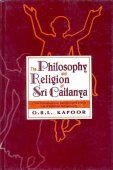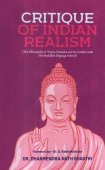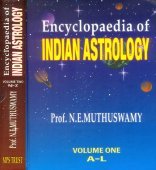Inconceivable: 1 definition
Introduction:
Inconceivable means something in Hinduism, Sanskrit. If you want to know the exact meaning, history, etymology or English translation of this term then check out the descriptions on this page. Add your comment or reference to a book if you want to contribute to this summary article.
In Hinduism
Yoga (school of philosophy)
Source: ORA: Amanaska (king of all yogas): A Critical Edition and Annotated Translation by Jason Birch(That which is) Inconceivable is denoted by the Sanskrit term Cintya, according to the Sarvajñānottara verse 20.34-39.—Accordingly, while discussing the culmination of detachment (for the process of attaining the no-mind state): “[...] Having established his state in that which is free of all states, he makes his state supportless. Having made the mind no-mind, he thinks of nothing whatsoever. He should meditate on the self [as] neither conceivable nor inconceivable (acintya) and [as] both. He knows the self to be free from all partialities. [...]”.

Yoga is originally considered a branch of Hindu philosophy (astika), but both ancient and modern Yoga combine the physical, mental and spiritual. Yoga teaches various physical techniques also known as āsanas (postures), used for various purposes (eg., meditation, contemplation, relaxation).
See also (Relevant definitions)
Query error!
Full-text (+161): Acintya, Akalpaniya, Atarkya, Acitta, Abhavaniya, Acintaniya, Durvibhavya, Asambhavaniya, Agribhita, Alakshya, Nistarkya, Acintiya, Acintyavirya, Agamya, Acintyaparakrama, Apratarkya, Asambhavit, Ajneya, Durvibhavaniya, Anavadharyate.
Relevant text
Search found 159 books and stories containing Inconceivable; (plurals include: Inconceivables). You can also click to the full overview containing English textual excerpts. Below are direct links for the most relevant articles:
Shurangama Sutra (with commentary) (English) (by Hsuan Hua)
Four inconceivables < [Chapter 2 - Twenty-five Means to Enlightenment]
Manjushri seeks aid and generally concludes < [Chapter 3 - Manjushri Selects the Organ of Entry]
Based on the arising of pure conditions, there is unobstructed fusion < [Chapter 2 - The Reason for Perfect Penetration]
Guhyagarbha Tantra (with Commentary) (by Gyurme Dorje)
Text 19.20 (Commentary) < [Chapter 19 (Text And Commentary)]
Text 19.19 (Commentary) < [Chapter 19 (Text And Commentary)]
Text 5.4 (Commentary) < [Chapter 5 (text and commentary)]
Vimalakirti Nirdesa Sutra (by Robert A. F. Thurman)
Chapter 6 - The Inconceivable Liberation
Chapter 11 - Lesson of the Destructible and the Indestructible
Brihad Bhagavatamrita (commentary) (by Śrī Śrīmad Bhaktivedānta Nārāyana Gosvāmī Mahārāja)
Verse 2.4.165 < [Chapter 4 - Vaikuṇṭha (the spiritual world)]
Verse 2.4.179 < [Chapter 4 - Vaikuṇṭha (the spiritual world)]
Verse 1.4.109 < [Chapter 4 - Bhakta (the devotee)]
Buddha-nature (as Depicted in the Lankavatara-sutra) (by Nguyen Dac Sy)
3.2. Overcoming the Twofold Death < [Chapter 4 - The Thought of Buddha-Nature in the Laṅkāvatārasūtra]
3.3. Cleansing the Twofold Group of Passions < [Chapter 4 - The Thought of Buddha-Nature in the Laṅkāvatārasūtra]
The Individuality of the Buddha-nature < [Introduction]
Vimalakirti Nirdesa Sutra (by Charles Luk)
Related products


